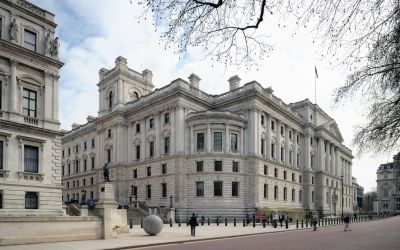Climate talks may breakdown unless Kyoto deal is extended
Japan's refusal to extend the Kyoto Protocol could curtail work on a global agreement to combat greenhouse gas (GHG) emissions at the 16th Conference of Parties (COP16) in Cancun, say China and Brazil.

Japan's refusal to extend the Kyoto Protocol could curtail work on a global agreement to combat greenhouse gas (GHG) emissions at the 16th Conference of Parties (COP16) in Cancun, say China and Brazil.
The Kyoto Protocol was ratified in 1997 and expires in December 2012. Delegates from China and Brazil say extending it is vital in combating climate change. "The Kyoto Protocol is the very basis of the framework to address climate change through international cooperation," said Su Wei, Chinese Director General of the Department of Climate Change, National Development and Reform Commission, to reporters in Cancun yesterday. "If the pillar is collapsed, you can guess the consequences."
Luiz Alberto Figeiredo Machado, Director-General of the Department for the Environment and Special Affairs Ministry of External Relations, echoed those sentiments in an interview in Cancun last night: "Kyoto has to continue otherwise the whole negotiation would fall apart."
Japan is widely regarded as one of the more progressive voices at the UN negotiations, having been one of the first industrialised nations to commit to relatively deep emission reductions of 25 per cent below 1990 levels by 2020.
Japan is in favour of a new, legally-binding agreement that includes the other main GHG emitters – China, the US and Russia. Extending the Kyoto Protocol would mean developed countries, like Japan, will remain subject to stricter emissions targets than developing nations like Brazil and China.
In the past Japan has been opposed to extending the Kyoto Protocol because it only bound richer nations to limiting their GHG emissions. Last month they indicated that they would continue with such a stance, even if it meant becoming isolated at COP16.
"European countries from this year have proposed that it could be okay to extend the commitment period of the Kyoto Protocol if it is joined by major emitters, but we have made clear that this is not acceptable," said Hideki Minamikawa, Vice Minister for Global Environmental Affairs at Japan's Environment Ministry, at a news conference last month. "Even if the issue of extending the Kyoto Protocol becomes a major item on the agenda in Cancun and Japan finds itself isolated, Japan will not agree to this."
Additionally, Minamikawa indicated that, though Japan would not sign an extension of the Kyoto Protocol, it would not abandon the framework. "Even if there is agreement (on extending Kyoto), countries under the framework must consent in writing and provisions won't apply to those that do not submit consent." He also added: "Under the current circumstances, it is inconceivable that Japan would submit its consent in writing, so in that case...the agreement would not apply to Japan."
This would leave other nations free to sign an extension that would not include Japan or the US, one that would continue to class China as a developing nation. Kyoto obliges industrialised nations to cut GHG emissions by at least 5.2 per cent below 1990 levels from 2008-12.
Christiana Figueres, Executive Secretary of the United Nations Framework Convention on Climate Change, took a positive line to the start of talks and indicated they were on track. "The start is constructive, it's positive and we have very public expressions of the willingness to compromise," she said.
Despite her positivity, Japan has concerns that extending Kyoto may establish a framework that exempts emerging economies - and the United States - from commitments to reduce GHG emissions. In contrast, developing nations say the developed nations must unilaterally extend Kyoto, saying they are responsible for causing the problem of global warming in the first place. The parties have until 10 December 2010 to work through their differences and hopefully come up with an agreement.
Author: Leroy Robinson | Climate Action
Image: linh.m.do | Flickr






